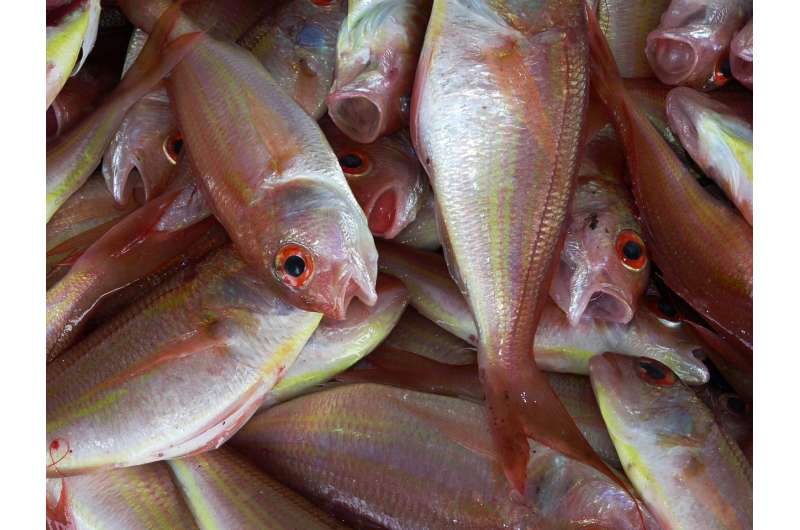Healthy gut microbiomes can influence farmed fish

We've all probably heard or read something about how a healthy gut microbiome can affect our overall health. The gut microbiome is as vital to animals and fish as it is to us humans.
We have microbiomes in different parts of our bodies, on our skin, for example.
Microbiomes are made up of communities of different microorganisms, viruses and germs and these communities play an important role in the way in which we function. There is even evidence to show that a poor gut biome can lead to ill-health or even disease.
With around 45% of the fish we buy and eat globally coming from farmed sources, understanding the fish gut microbiome is essential to supply this demand.
The aquaculture or fish farming industry is therefore driving this area of research in order to improve the health of farmed fish. This in turn should bring benefits in terms of a healthier fish and therefore, ultimately cheaper and higher quality produce for the consumer.
Researchers at Bangor University and the Universities of Glasgow, Stirling and Liverpool John Moores have reviewed and drawn together research conclusions, and highlighted knowledge gaps and useful areas of further research. Their paper is published in the research journal Proceedings of the Royal Society B.
Will Perry, lead author and Bangor University School of Natural Sciences Ph.D. student explains: "The gut microbiome is vital for healthy fish growth and plays a role in fighting disease. The microbiome contributes to the fish's ability to digest and make use of fatty acids and vitamins.
However, the fact that fish are farmed can affect their gut microbiome, through changes in diet, the introduction of other inputs to maintain health, like antibiotics, and high population densities.
As with humans, a dose of antibiotics can mess around with the microbiome in the gut and can harm helpful bacteria. Over-use of antibiotics can also lead to antibiotic resistance in fish as with animals and humans.
One response is the development of alternatives to antibiotics, including the application of vaccines, through injecting the fish, immersing the fish in the vaccine, or feeding the fish the vaccine.
Alternative proteins are also increasingly used to feed fish, including those derived from plants and insects. But these have different effects on the microbiome, and benefits can vary between different fish species, with scope for further research."
Elle Lindsay, a Ph.D. student and researcher at the University of Glasgow added:
"It is both an exciting and challenging area of research, because so many factors can impact the gut microbiome: it can even change over an individual's development. Most studies look at the impact of one factor, such as diet, on the gut microbiota, so it has been helpful to compile all the research and gain greater insight. We can now begin to understand the complex interactions between a fish host, its gut microbiota and the environment."
Ph.D. student Chris Brodie of Liverpool John Moores University said:
"New technology and techniques developed to increase the efficiency of fish farming can inadvertently change the natural order of microbes living inside fish. This review highlights some of the key impacts' aquaculture is having on the health of farmed fish from the changes it is having on the gut microbiome."
"It's a highly complex area," concludes Will Perry, "and although research has come a long way, we need to understand more about the composition and function of the gut microbiome in fish. This is a challenge because it involves the combination of multiple cutting edge molecular techniques"
More information: William Bernard Perry et al. The role of the gut microbiome in sustainable teleost aquaculture, Proceedings of the Royal Society B: Biological Sciences (2020). DOI: 10.1098/rspb.2020.0184
Journal information: Proceedings of the Royal Society B
Provided by Bangor University



















